Oil Exploration Is Ramping Up Off Norway
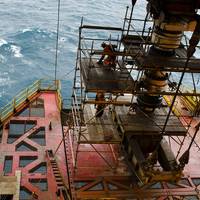
Oil firms are expected to drill 40-50 exploration wells off Norway this year compared to 36 wells drilled the previous year, the Norwegian Petroleum Directorate said on Thursday.The Norwegian continental shelf still held an estimated 4 billion cubic meters (25.2 billion barrels) of oil equivalents in undiscovered petroleum resources, with two-thirds located in the Arctic Barents Sea, it added.Half of estimated undiscovered resources in the Barents Sea, however, are located north of the areas opened for petroleum activities, and it's unclear when oil firms can get access to them.(Reporting by N
Statoil to Drill 5-6 Wells in Arctic Barents Sea in 2018
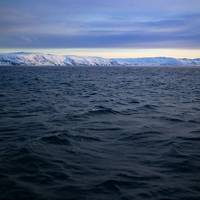
Norway's Statoil will continue to drill for oil in the Arctic Barents Sea next year even though its 2017 campaign was mostly disappointing, the company's head of exploration told Reuters on Tuesday. Statoil plans to drill between 25 and 30 wells in Norwegian waters in 2018, of which five or six are expected in the Barents and the rest will be split between the North Sea and the Norwegian Sea, which are both located further south. "We have tested a lot of potential there (in 2017)…
Activists Protest near Oil Rig in Norway's Arctic Sea Area
Environmental activists protested on Friday near an offshore rig contracted by Statoil in the remote Norwegian Arctic, where the firm is looking for oil and gas deposits. The Nordic country wants to open up northern areas for exploration to offset declining production in the south. Oil and gas production is Norway's leading industry, accounting for 20 percent of its economy. From the Greenpeace Arctic Sunrise ship, 11 campaigners launched inflatable boats carrying banners opposing Statoil's Songa Enabler oil rig, 275 km (170 miles) north of the Norwegian coast, in the Arctic Barents sea. One of the banners read "“The People Vs. Arctic Oil”.
Russia Launches ‘World’s Largest’ Nuclear Icebreaker
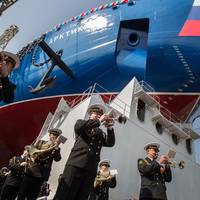
Russia has unveiled Arktika, touted as the world’s largest and most powerful nuclear icebreaker, during a launching ceremony on June 16 at Baltic Shipyard in St Petersburg. The 173 meter long, 34 meter wide Arktika is the lead nuclear icebreaker ordered by Russia's Rosatom state nuclear agency for navigation through the Northern Sea Route, and more specifically the delivery of hydrocarbons to Asian markets. “There are no analogs of the icebreaker such as the Arktika in the world,” said Rosatom CEO Sergey Kirienko at the launching ceremony.
Statoil Goes Ahead with Arctic Field after Halving Costs
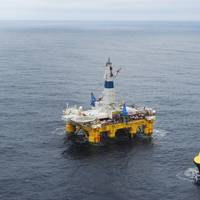
Norwegian oil major Statoil plans to develop its Arctic Johan Castberg oilfield after having cut costs by half, with a decision on investments in 2017, its chief executive said on Tuesday. Worried by high costs of operating in the remote Arctic Barents Sea, the Norwegian oil major last year delayed a final investment decision for Castberg, one of the world's northernmost oil finds. "The investment estimate is almost halved from around 100 billion crowns ($11.29 billion) to between 50 and 60 billion crowns," Chief Executive Eldar Saetre told an industry conference on Tuesday.
Shell Withdraws from Arctic Exploration
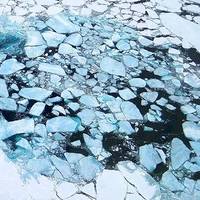
Royal Dutch Shell has abandoned its Arctic search for oil after failing to find enough crude in a move that will appease environmental campaigners and shareholders who said its project was too expensive and risky. Shell has spent about $7 billion on exploration in the waters off Alaska so far and said it could take a hit of up to $4.1 billion for pulling out of the Chukchi Sea for the "foreseeable future". The unsuccessful campaign is Shell's second major setback in the Arctic after it interrupted exploration for three years in 2012 when an enormous drilling rig broke free and grounded.
Russia Sanctions Could Slow Norwegian Arctic Exploration
Western sanctions against Russia may slow down exploration for oil and gas on both the Norwegian and Russian side of the Arctic Barents Sea, lobby group Norwegian Oil & Gas told Reuters on Wednesday. "We have many members working on both sides of the border, where coordination of fields will be a key topic. Collection of seismic and other joint activities may be affected," said the group's head of legal affairs, Oluf Bjoerndal. The association represents oil firms, including most supermajors, as well as some of the world's biggest oil and gas service firms. "We fear that this could become a problem. There's a worry about that. It may mean that some areas aren't explored well enough, that potential discoveries are delayed," he added.
GDF drills dry well in Arctic Barents Sea
French explorer GDF Suez drilled a dry well in the Arctic Barents Sea about 65 kilometers southwest of the Johan Castberg fields, the Norwegian Petroleum Directorate said on Thursday. GDF holds 60 percent of the license, while Concedo and OMV each hold 20 percent. Reporting by Balazs Koranyi
Norway Confirms Small Arctic Oil Find
Norwegian oil explorer Det norske made a small oil discovery in the Arctic Barents Sea with a gross oil column of about 30 metres and much poorer reservoir quality than expected, the Norwegian Petroleum Directorate said on Monday. Det norske earlier said it found some oil in the prospect but initial volumes did not justify development. Det norske operates the licence and holds a 20 percent stake. Other shareholders include Sweden's Lundin Petroleum (20 percent), Tullow (15 percent), Rocksource (5 percent), Norwegian state holding firm Petoro (30 percent) and Atlantic Petroleum (10 percent).
Poll: Arctic Will Reverse Norwegian Oil Production Decline
A poll conducted at the Offshore Northern Seas (ONS) conference in Stavanger has revealed that industry professionals see Arctic exploration as a viable solution to Norway’s declining oil production rates. 74% of participants said that the development of sizeable reserves in Arctic waters offshore Norway could reverse the country’s diminishing North Sea production rates by 2030. By contrast, only 26% of participants felt Norway would not be able to abate the decline through Arctic exploration. The Industry Snapshot Poll was conducted on the first day of ONS by global independent technical advisor, GL Noble Denton. Senior professionals from across the industry also took part in the poll online.
Russian Sub Rescue Update: Too Little, Too Late?
Indecision from Russia regarding help from foreign nations in aiding efforts to rescue an estimated 118 sailors trapped in a Nuclear submarine lying on the bottom of the Barents Sea evaporated today, as Norway said that divers due to join a British bid to save 118 Russian sailors trapped in a submarine on the bed of the Barents Sea would arrive on Saturday. Meanwhile, Prime Minister Mikhail Kasyanov said on Thursday the situation around the sunken nuclear submarine Kursk was "next to catastrophic", but he hoped chances remained to save its 118 crew, Russian news agencies reported. "During the past night there were no changes for better or worse," Interfax news agency quoted Kasyanov as telling a government meeting.
Russian Sub Rescue Update: Too Little, Too Late?
Indecision from Russia regarding help from foreign nations in aiding efforts to rescue an estimated 118 sailors trapped in a Nuclear submarine lying on the bottom of the Barents Sea evaporated today, as Norway said that divers due to join a British bid to save 118 Russian sailors trapped in a submarine on the bed of the Barents Sea would arrive on Saturday. Meanwhile, Prime Minister Mikhail Kasyanov said on Thursday the situation around the sunken nuclear submarine Kursk was "next to catastrophic", but he hoped chances remained to save its 118 crew, Russian news agencies reported. "During the past night there were no changes for better or worse," Interfax news agency quoted Kasyanov as telling a government meeting.
Kursk Lifting Unlikely Before Mid-2001
Any operation to lift Russia's sunken Kursk submarine will take months of planning and so is unlikely until summer 2001, Stolt Offshore officials said. Stolt's Norwegian and British divers earlier this week managed to open the Kursk's escape hatch, but and found the sub flooded with all 118 crew dead. Stolt, which specializes in North Sea diving and salvage work, agreed to look at ways of raising the wreck or recovering the corpses. With the approach of the winter, months of planning mean that any operation would have to wait until light and calmer seas returned to the Arctic Barents Sea in 2001.
Russia And Norway To Join Forces During Disasters At Sea
Russia and Norway signed an accord on Friday committing them immediately to alert their neighbor of any sea accidents such as the underwater explosion that sank a Russian submarine last month. Russian Prime Minister Mikhail Kasyanov and his Norwegian counterpart Jens Stoltenberg signed a memorandum in Oslo, which also included a plan to start joint search and rescue exercises. "We agree that we will expand, tighten and strengthen the duty to give the alert about accidents at sea," Stoltenberg was reported as saying at a joint news conference in Oslo after meetings with Kasyanov. Norwegian divers helped Russia in its rescue work after the Kursk submarine sank in the Arctic Barents Sea about 150 miles from NATO-member Norway, killing all 118 onboard.
Russian Nuclear Sub Towed Home
A Russian nuclear-powered submarine was towed to port this month after an apparently minor accident in the Barents Sea, where the Kursk sank last year with the loss of 118 lives, Norway said on Wednesday. "We registered that a Victor III class submarine was towed to port...there was nothing to indicate that it was a serious accident," said commander Per Hoiby, a spokesman for the Norwegian armed forces. He said that the submarine had been trailing "smoke or exhaust...It could, for instance, have been a problem with a diesel generator." Nuclear submarines sometimes also use diesel generators. The Kursk submarine sank in the Arctic Barents Sea in August with the loss of all 118 sailors aboard. Hoiby said that the latest accident happened about a week and a half ago.






